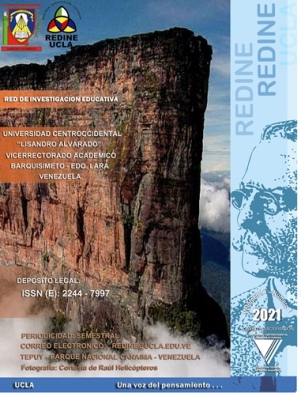Knowledge society versus the neoliberalist model
Abstract
In the educational system it is essential to exchange and share knowledge, for this, the introduction of Information and Communication Technologies (ICT) such as the internet; They play an important role, since the digital divide between people who have similar interests is reduced and that in turn give effective use to develop this knowledge. In this argumentative essay, it is pondered how knowledge societies are built based on an educated population, with knowledge-producing institutions, without the influence of neoliberalism, because both are two very dissimilar spheres. UNESCO's mission is to develop education as an essential right, improve the quality of education and stimulate innovation and political dialogue, hence, educational institutions are producers and generators of knowledge, becoming the most important capital where the success of a society resides in its benefit. There is no doubt that knowledge has become the center of political, cultural and economic challenges, where the societies whose prospects are beginning to be perceived can be classified as knowledge societies.
Downloads
References
Emmelhainz, I. (2016). La tiranía del sentido común: La reconversión neoliberal de México. Paradiso editores (Colección Continente Negro). Primera edición. ISBN 978-607-96715-8-7. México.
Gallardo, A. (1998). Curso de las teorías de la comunicación. Editorial CROMOCOLOR, S.A. De C.V. México.
Kissinger, H. (2016). Orden mundial “reflexiones sobre el carácter de los países y el curso de la Historia. 4° Edición, Editorial Debate, ISBN: 9788499925714. Barcelona, España.
Matterlart, A y Matterlart, M (2003). Historia de la teoría de la comunicación. Editorial PAIDOS, Barcelona. Buenos Aires. México.
Teor. Educ. (2013). Sociedad del Conocimiento y Educación XXXI SITE-UNED-Plasencia-noviembre de 2012: Información. Ediciones Universidad de Salamanca. Teor. Educ. 25, 1-2013, ISSN: 1130-3743 - CDU 37.013. pp. 263-269. DOI: http://dx.doi.org/10.14201/i708 . España.
Published
How to Cite
Issue
Section
Derechos del/de autor/es a partir del año de publicación
Esta obra está bajo la licencia:
Creative Commons Reconocimiento-NoComercial-CompartirIgual 4.0 Internacional (CC BY-NC-SA 4.0)
Las opiniones expresadas por los autores no necesariamente reflejan la postura del editor de la publicación ni de la UCLA. Se autoriza la reproducción total o parcial de los textos aquí publicados, siempre y cuando se cite la fuente completa y la dirección electrónica de esta revista. Los autores(as) tienen el derecho de utilizar sus artículos para cualquier propósito siempre y cuando se realice sin fines de lucro. Los autores(as) pueden publicar en internet o cualquier otro medio la versión final aprobada de su trabajo, luego que esta ha sido publicada en esta revista.




